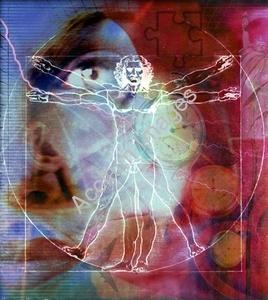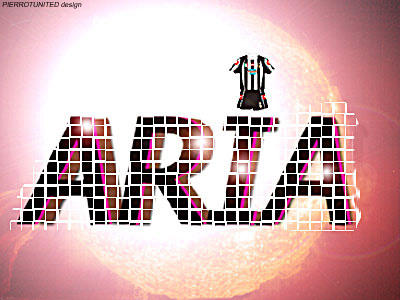A Paradox of Understanding...

In the quiet stillness of an airy solitude, I remonstrate my peripheral indifference
to a life that probably was ne’er meant to be. What is this but a weary soulless existence where warped emotions rule over rational sensibility?
I ponder through the theoretical desire for a maudlin need of “Negative Capabilities”, and search for TRUTH…. TRUTH as it should be – not having the characteristic of uncanny unwanted verisimilitude. Yet the question must be asked – What is TRUTH?
One can easily adopt the Platonic viewpoint that knowing the Truth means knowing things as they really are. But herein lies the relentless crux of the dilemma. Truth to me, may be an unmitigated Untruth to another. Interpretation therefore has to bear the indomitable blame for any discrepancies of argument. Bradley had proposed the metaphysical viewpoint of knowing Reality as opposed to mere appearance. Again, Interpretation takes the focus. Oftentimes however, Interpretation is nothing more than a derelict inducement… a morbid philanthropy of excessive redundancies.
Does an Absolute Truth exist? To many philosophers I assure you it most certainly does. But what about the “enlightened” post-modernist view that the only Absolute Truth is that there are NO Absolute Truths? Once a coherent explication is agreed upon, then progress of cognizable proportions can be made. But for one who does NOT profess to be a self-acclaimed cognoscente on the topic of Truth, I am momentarily satisfied with the cogitable notion that MY Truth is MY Reality.
It follows then to ask : “What is Reality?”. Can it unequivocally be deduced that Reality is the source of all Truth and Wisdom? If all Truth comes from Reality, then to be wise, we must know Reality. We are able to conceive of our Reality based on our experiences and judgments which would have been influenced by our senses. It would be rational then to say that “all knowledge of Reality ultimately comes from our senses.”
But how much attention should be assigned to our senses? A true connection with them will permit us to have that intuitive precept which would repudiate malignant tendencies. What we embrace as positive or reproach as negative would depend on our Beliefs. These Beliefs would have a resounding basis on our Interpretation and Understanding of Right from Wrong. This difference will be defined through our Wisdom gained through Experience, and to an extent, from our consentient acknowledgement of the dictates of our Conscience.
If we want to consider another view, one can turn to the tautology of Plato. According to Plato, “when the mind’s eye rests on objects illuminated by truth and reality, it understands and comprehends them, and functions intelligently; but when it turns to the twilight world of change and decay, it can only form opinions, its vision is confused and its belief shifting, and it seems to lack intelligence.” One can justly conclude then that once we can understand the Truth and Reality of something, only then can we fully appreciate it.
I do exist in this impious domain of Humanity, yet who am I among these mortals? I yearn to obliterate preponderances in the undying search for Identity… the unending quest for Meaning …. But what is Identity? Surely there must be more to it than an ostentatious disposition of antics dolorously exhibited to dislodge societal pretensions. Is it a mere disquisition of incongruity on a multi-faceted existence? But for what possible purpose ? Perchance, is there the possibility of eliminating our omnifarious roles ? I think not. It may be possible to reduce the number of roles, but to eliminate them altogether seems almost cataclysmic.
These multifarious roles are indeed necessary to successfully maintain our societal façade. But surely out of the multitude of roles, there must be a singular role to characterize one as an Individual. When the cognizance of this Individuality stirs, Existence is questioned.
If I can indubitably acquiesce that the certainty of my Identity is ME as I AM, the next rational argument is for me to question the purpose of this overwhelming Existence. What is the Meaning of my Identity? What is the Meaning of Existence? Thoughts proliferate tenfold. Suggestions abound with prolificity but yet there is a laconic deficiency of answers leading to a sanguinary pathos of nebulous skepticism.
How justified was Descartes when he proclaimed “cogito, ergo sum” ( I think, therefore I am) ? Wherein lies the link between Thought and Existence? Surely there has to be some clearly defined boundary because without restraint, the mind has the tendency to roam to wherever it will, oblivious to all the clamour seeking for its return to the realm of Reason and Rationality.
Einstein propounded that “pure thought can grasp reality”. If this maxim can be prognosticated as being true, then by having clearly defined thoughts, we can grasp our Reality and perhaps understand our Existence. Could it be that a clear understanding, and perhaps acceptance, of our Existence will indeed allow us to deduce our Reality and acclaim our Truth?
I must confess that the fundamental basis of this preponderate proposition of understanding, has led to the confluence of many pertinent pantological points of which I am no expert. However, I wholeheartedly hope that this discussion proves to be more than just a prolix plethora of possibilities and postulated pragmatism posited in plenitude and predicated as praxis.
- © 2004 Radica



0 Comments:
Post a Comment
<< Home